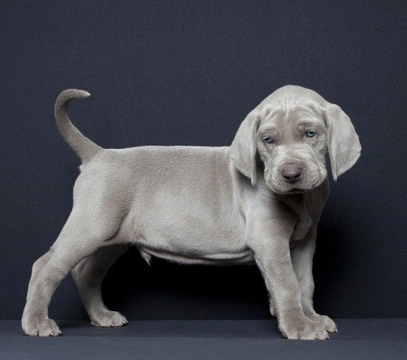
Responsible breeding - Some common-sense guidelines for both breeders and puppy buyers
If you have a pedigree dog that you are considering breeding from or if you are in the market to buy a new pedigree puppy, it is easy to assume that the presence of pedigree papers for the dogs in question confers a degree of protection in terms of the health and wellness of the dogs involved.
However, all that pedigree registration ensures is that the ancestry and genes of the dogs in question (both the parent dogs and their puppies) are recognised as part of that breed, and the condition and quality of dogs used for breeding and their puppies can vary considerably.
Whether you are interested in a show-standard dog or simply wish to keep a dog of a specific breed as a pet, it is important to look beneath the surface, and ensure that you undertake breeding responsibly if you wish to breed from your dog, or only buy responsibly bred puppies if you are looking for a new puppy.
There is much more to responsible breeding than simply ensuring that you can find homes for all of your puppies, and that the dam of the puppies is not bred so many times that her own health is affected.
If you are considering breeding from your dog, check out our list of responsible breeding guidelines and ensure that you can tick off every concern on the list. If you are the potential buyer of a puppy, make sure that your breeder is a responsible, caring dog owner and that your puppy stands the best chance of being healthy by verifying that this is the case.
- Only ever buy or breed from dogs that are clinically healthy, sound, and do not show any signs of genetically inherited health problems.
- Do not breed more than one litter per year from any given dam, and do not breed year on year without regard for the health and wellbeing of the dam.
- Only breed from dams that are able to give birth naturally; dogs with overly-large heads or other issues that can be reasonably foreseen to present problems with delivery should not be bred.
- Consider the temperament of the parent dogs, and do not breed from dogs that are unpredictable or snappy, nor dams that show indications of mental abnormalities or that may be unable or unwilling to care for their puppies.
- Undertake screening and DNA testing for dogs of high profile breeds, in order to ensure that dogs with a genetic predisposition to health problems are not deliberately bred.
- Ensure that you can trace the lineage of both sides of the bloodline, and identify any temperament or physical issues in prior generations that may present in the puppies.
- Do not breed for deliberately exaggerated features that may cause health or comfort problems in the subsequent puppies.
- Ensure that both potential parent dogs are tested and screened for brucellosis before breeding.
- Make sure that your dam is health-checked by a vet and approved as fit for breeding before going ahead. Advise your vet of the approximate due date of the dam, and ensure that the veterinary practice is kept informed in case of any problems.
- Both the sire and the dam should be fully vaccinated against all of the standard transmissible canine diseases.
- Choose the sire of the litter with care, and make sure that if you do not own the dog yourself, you can spend enough time with it to be able to build up a picture of its temperament and personality and ensure that they are desirable and something that you want to introduce into the subsequent puppies.
- Do not breed from your dog if there is already a glut of dogs and puppies of that type being bred, or lots of adult dogs of the breed in need of rehoming.
- Register in The Kennel Club’s Assured Breeder scheme, to verify that your decision to breed and your breeding protocols are up to standard.
- Check the coefficients of inbreeding for your potential dam and sire, in order to establish how closely or distantly the dogs are related to each other and if their genetic similarities will potentially pose a problem.
- Only breed if you are confident after doing your homework on the dam and the sire that your ultimate litter will be of the same standard, or better than, the parent dogs.
- Have a plan in place for what you will do if any of the puppies are unwell or physically imperfect, and ensure that you are willing to keep them and care for them if they are unable to be sold.
- Make sure that no breeding endorsement (restriction or denial of permission to breed by The Kennel Club) has been placed on your dog’s name. A breeding endorsement may be notated to a dog for a range of reasons, for instance if they are considered to be a particularly risky carrier of the gene for a health condition or mutation.
- Finally, always breed for health, improvement and the best interests of the dogs first and foremost, rather than to make a profit. Never view your dogs as a source of income above all else, and never, ever buy or sell dogs to a puppy farm of puppy mill. More information on puppy farms can be found here.



